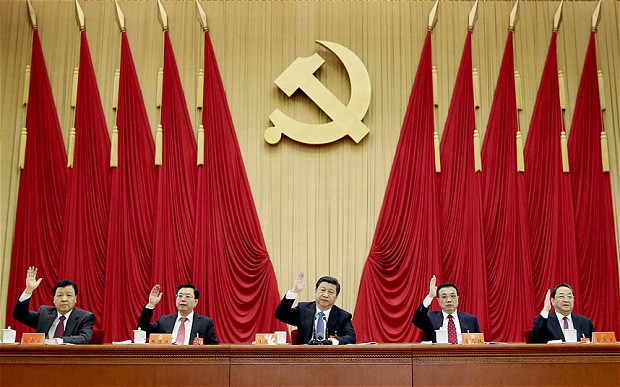On November 23rd, the Chinese Military surprised a world preoccupied with negotiations over Iran’s nuclear program in Geneva by announcing the creation of an Air Defence Identification Zone (ADIZ) over the East China Sea, requiring aircraft flying through to report to Chinese authorities and comply with local air traffic control.
In and of itself, this would not be a major development, as many countries maintain similar zones in their airspace. However, the Chinese ADIZ happens to overlap with those of its neighbours, primarily Japan, with which it has a maritime territorial dispute over the Senkaku / Diaoyu Islands, and perhaps more surprisingly, also with South Korea. The Chinese zone extends beyond a submerged reef called Ieodo, which South Korea claims as an Exclusive Economic Zone (EEZ).
China’s neighbours Japan and South Korea blatantly disregarded the move immediately by flying planes over the zone. In addition, the United States, always concerned with developments in the region, flew unarmed military aircraft over the zone.
In many ways, this decision by China is puzzling. Why would China openly antagonize not just one, but two of its most important neighbours in one fell swoop, without any tangible benefit to its standing in the region?
A Puzzling Decision
One reason could be that China is responding to perceived Japanese assertiveness under the Abe administration. Indeed, in recent months, Japan has ramped up its rhetoric that it perceives China as a threat, and is increasingly reaching out to its allies to secure itself against China.
More likely however, is that domestic politics have played a more important role. Since its economic liberalization in 1979, and especially since the Tiananmen Square Protests of 1989, the Communist Party of China has relied increasingly on Chinese nationalism and economic growth rather than Communism as its legitimating ideology.
Much of this nationalism is targeted outwards, especially at its historical nemesis Japan. Indeed, in everything from schoolbooks to museum exhibits, Japan is painted as the cause for most of China’s misfortunes in its modern history. This has, in addition to living historical memory, helped perpetuate a deep Japanophobia in Chinese popular consciousness, which the Chinese government feels the need to stoke from time to time.
As long as economic growth has stayed high, delivering prosperity to more and more Chinese, the Chinese government has been able to keep excessive displays of Chinese nationalism at bay, while not openly opposing them.
In recent times however, China has been trying to fundamentally rebalance its economy away from investment-led growth towards more domestic consumption, a process that will necessitate lower average growth rates and volatility during adjustment. This will inevitably lead to domestic unrest about economic issues coming to the fore. Thus, in the current economic climate, the Chinese government has a stronger incentive to indulge in nationalistic displays of power.
Drawn Together
While most of China’s aggressive posturing, including the establishment of the ADIZ, is directed at Japan, by including South Korean claims in the zone, it may have ironically provided these two countries a reason for burying their own nationalistically-tinged conflict.
In many ways, Japan and South Korea would be ideal allies. Both are mature democracies and market economies in a region of mostly authoritarian states, and both countries feel threatened by an increasingly powerful China. However, for reasons relating primarily to Japan’s imperial history, the two countries have been unable to co-operate meaningfully, both preferring to rely on the United States for their security.
However, the establishment of the Chinese ADIZ, which has managed to offend both countries in a single stroke, has provided Japan and South Korea with the best opening for rapprochement in years, which, were it to happen, could do much to thwart China’s assertiveness in the region. This may end up being the single most important result of China’s move, and one that the Chinese leadership surely was not hoping for.




